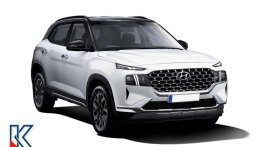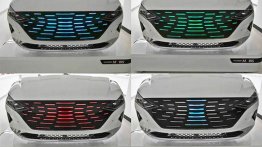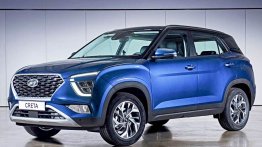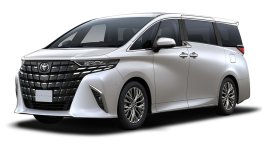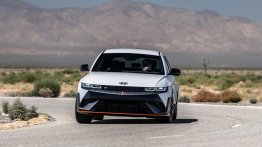The third-gen Hyundai i20 is growing to be quite a popular hatchback in its segment. Earlier this month, we reported to you that Hyundai has already garnered over 35,000 bookings for the new i20 in less than two months time since its launch. The new Hyundai i20 is certainly on the pricier side but it is also the most feature-rich hatchback in its class and by quite a margin. It is also the hatchback which offers the widest range of powertrain options in its class currently.
Hyundai offers a 1.2L, naturally aspirated petrol engine, a 1.0L turbo-petrol engine and even a 1.5L turbodiesel engine with the new i20. If you are looking for a diesel premium hatchback, the i20 along with the Tata Altroz are the only two options in this class. The i20 obviously gets an old-school 1.2L, naturally aspirated engine but for an enthusiastic persona, it also gets the most powerful-in-class 1.0L turbo-petrol engine to take competition to the likes of new Tata Altroz iTurbo and the Volkswagen Polo GT TSI. There's also five different gearbox options for the three engines on offer.
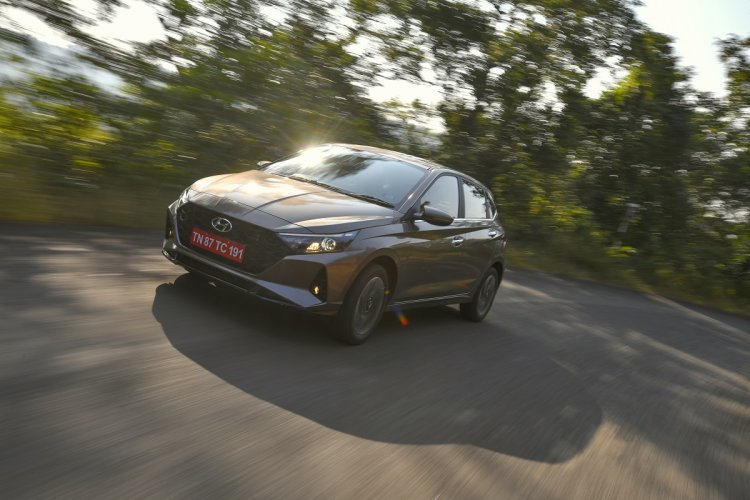
Also Read : Hyundai i20 vs Tata Altroz - Acceleration Test - Diesel Manual
Hyundai i20 1.5L Diesel vs 1.2L NA Petrol Engine - Specs
| Hyundai i20 Diesel |
Hyundai i20 NA Petrol
|
|
| Engine | 1.5L CRDi Diesel Engine |
1.2L NA Four-Cyliner Engine
|
| Power | 100hp | 83hp |
| Torque | 240Nm | 115Nm |
| Transmission | 6-speed MT | 5-speed manual |
With such a wide variety of powertrain options, we wanted to find out which of these might be the quickest. Here in this video, we are comparing the acceleration of the Hyundai i20 diesel vs the naturally aspirated petrol engine, both with their respective manual gearboxes. A quick look at the specifications reveal that the Hyundai i20 diesel is both more powerful and has more torque than the NA petrol engine. The diesel version also gets a 6-speed manual gearbox while the petrol version gets a 5-speed manual gearbox. So let's find out how it translates to real world performance.
Hyundai i20 1.5L Diesel vs 1.2L NA Petrol Engine - Acceleration
| Hyundai i20 Diesel |
Hyundai i20 NA Petrol
|
|
| 0-100kmph (First Attempt) | 11.92 seconds | 13.83 seconds |
| 0-100kmph (Second Attempt) | 11.87 seconds | 13.47 seconds |
| 0-100kmph (Third Attempt) | 11.23 seconds | 13.32 seconds |
Well, the Hyundai i20 diesel is clearly faster of the two and its advantage on paper translates quite well in real world performance. The best run achieved with the i2o diesel was 11.23 seconds while the best run achieved with the i20 1.2L petrol was at 13.32 seconds. That's a difference of over a second. While a gap of about a second does not seem all that much on paper, the Hyundai i20 diesel actually feels quite a lot faster than the naturally aspirated petrol version of the hatchback.

The top-spec Hyundai i20 diesel-manual is priced at INR 10.74 lakh while the top-spec Hyundai i20 1.2L petrol manual is priced at INR 10.63 lakh, both prices ex-showroom. If you are looking for something that's fast, the i20 diesel makes for a very compelling buy. It is clearly faster than its naturally aspirated petrol sibling and you also get the frugality from a diesel engine. That said, the NA petrol i20 is adequate in terms of performance and will get your job done just fine in most cases.
Stay tuned to IndianAutosBlog.com for more Hyundai updates and other four-wheeler news.



















